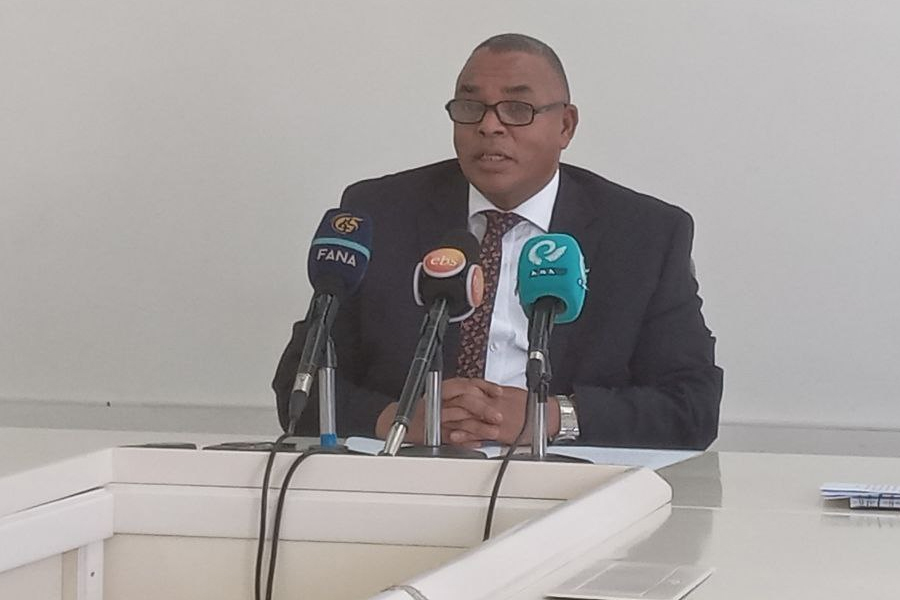
Radar | Nov 11,2023
A Lebanon-based consulting company, Dar Al-Handasah, has been hired by the Addis Abeba City Administration to revise the road design manual in effect for over a decade.
The manual design project is one component of the Transport System Improvement Project (TRANSIP) developed to improve mobility and road safety in the country, supported by the World Bank with a 300 million dollars fund. The company was hired in October this year to undertake the design revision for 94 million Br; it is expected to be completed in two years.
Consultants designing specific projects in the capital will get the revised manual, incorporating technical specifications guidelines. The revision is necessary since the manual is outdated, considering global development standards, according to Moges Tibebu, director of the Addis Abeba City Roads Authority. The existing design manual has drawbacks because it was adopted from the American Association of State Highway & Transportation Officials (AASHTO), a protocol and guideline used for highway design projects, disclosed Moges.
The Authority took the initiative two years ago. However, the no-show of bidders pushed the authorities to extend the deadline. The US-based Roy Jorgensen Associates Inc., Pakistan-owned Tears Consultant, and the UAE-based TrafQuest were among the bidders. Dar Al-Handasah, providing consultancy services with 47 offices worldwide, has worked with over 950 clients in over 63 countries.
It is tasked to draft standard specifications for the design revision, prepare standard bidding documents and terms of reference, and provide training to experts of the Authority considering the manual’s changes.
The city’s landscape, traffic signs, and drainage system will be a benchmark for assessment, Moges told Fortune.
Addis Abeba has close to 5,000Km asphalt, gravel, and cobblestone roads covering 24pc of the city’s terrain. Of the registered 1.3 million vehicles in the city, 70pc are in the traffic flow, with 20,000 cars joining each year, exacerbating overcrowding. The roads hardly meet the growing transportation demand, particularly the city’s main corridors.
Berhanu Zeleke (PhD) is a lecturer at the Kotebe Metropolitan University, teaching urban transport management. He attributed the city’s landscape to challenges in designing road and infrastructural projects. He believes a rapid population growth and the expansion of urbanisation make it essential to form an independent institution that works and regularly modifies designs.
“The problem is not seasonal,” said Berhanu.
Incorporated in 2008 with an initial capital of one million Br, RBDC Plc handled over a dozen road designs constructed in the capital. It also provides supervision services.
Road design consultants refer to other countries’ manuals, such as the AASHTO, as a guideline because of the gap in the city’s design manual, according to Biruk Tekelehaymanot, general manager of RBDC.
“There is an incompatibility between the design and the city structure,” he said.
According to Biruk, most designs do not consider the rising traffic overloads and are not technologically adept.
GOGOT Consulting Engineers, established in 2013, designed 10 road projects for the city administration and the Ethiopian Roads Authority. The Deputy Manager, Degafe Denbu, suggests installing traffic sensors at intersections and conjunction areas to help the progressive traffic management system rather than depending on manual controls.
The Authority floated a bid to hire a company to install and supply traffic signals with infrared sensors last year as a part of TRANSIP with hopes of determining traffic flow and upgrading its management. The Addis Ababa Traffic Management Bureau has installed 84 traffic signals at main intersections. However, the devices lack infrared sensors, which require human intervention during power outages and other incidents.
PUBLISHED ON
Nov 12,2022 [ VOL
23 , NO
1176]

Radar | Nov 11,2023

Fortune News | Aug 11,2024

Fortune News | Sep 21,2019

Radar | Aug 30,2025

Radar | Jul 18,2020

Radar | May 15,2021

Fortune News | Feb 22,2020

Fortune News | Sep 07,2025

Radar | Apr 22,2022

Radar | Apr 29,2023

Dec 22 , 2024 . By TIZITA SHEWAFERAW
Charged with transforming colossal state-owned enterprises into modern and competitiv...

Aug 18 , 2024 . By AKSAH ITALO
Although predictable Yonas Zerihun's job in the ride-hailing service is not immune to...

Jul 28 , 2024 . By TIZITA SHEWAFERAW
Unhabitual, perhaps too many, Samuel Gebreyohannes, 38, used to occasionally enjoy a couple of beers at breakfast. However, he recently swit...

Jul 13 , 2024 . By AKSAH ITALO
Investors who rely on tractors, trucks, and field vehicles for commuting, transporting commodities, and f...

Oct 18 , 2025
The political establishment, notably the ruling party and its top brass, has become p...

Oct 11 , 2025
Ladislas Farago, a roving Associated Press (AP) correspondent, arrived in Ethiopia in...

Oct 4 , 2025
Eyob Tekalegn (PhD) had been in the Governor's chair for only weeks when, on Septembe...

Sep 27 , 2025
Four years into an experiment with “shock therapy” in education, the national moo...